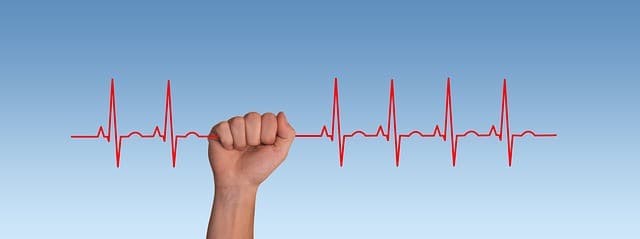
Contents
Can heart disease be prevented?
Preventing heart disease is possible to some extent. You can never eliminate the risk, but we can take certain measures that help reduce the possibility of cardiovascular disease.
Mortality from these pathologies has been declining in recent times. Although they are still the most frequent causes of death. The two most representative entities are cerebrovascular disease and ischemic heart disease.
Around 30% of all deaths that occur daily in the world correspond to cardiovascular events. That accounts for the importance of these conditions in the overall disease burden.
And we cannot say that it is only a problem for industrialized and rich countries. Although there is a belief that heart disease mostly affects high purchasing power groups. The truth is that the highest mortality burden is in low-income countries.
Having heart disease is a fear that afflicts the general population. Therefore, many of us are interested in knowing how we can prevent heart disease. We tell you in this article.
What are cardiovascular diseases?
To know how to prevent heart disease we must first identify what they are. Heart disease is a set of pathologies included in the category of cardiovascular diseases. Of which the most frequent are:
- Cerebrovascular disease: blood vessels in the brain are affected.
- Coronary heart disease: located in the vessels that supply the heart muscle.
- Thrombosis: is the formation of clots in the blood ducts. If the clot stays in place it is a thrombus. But if it detaches and travels to another site of the circulatory system it is a plunger.
- Arteriopathy: they are different clinical pictures that affect the arteries of the limbs.
- Other heart diseases: here we have, for example, rheumatic and congenital ones. The former is derived as a complication of rheumatic fever, and the latter are present from birth.
Read Also: Heart Rate: What Is It and How To Monitor It?
Risk factors of heart disease
Understanding how to prevent heart disease requires knowing what are the risk factors that make us susceptible to them. For cardiovascular diseases, risk factors are classified as non-modifiable and modifiable.
Un Modifiable Risk Factors
They are those against whom we cannot do anything, specifically. Age, for example, is a non-modifiable factor. So are sex and belonging to a certain ethnic group.
Scientifically, it is proven that those over forty are at greater risk, as are men more than women. Another non-modifiable risk factor is a family inheritance, that is, the history of parents, grandparents, and siblings with cardiological conditions.
Modifiable Risk Factors
On these factors, we can influence the change of habits or with medication that helps to control. We will talk about them more closely, and they are, for example, tobacco, diabetes, and blood cholesterol.
How to prevent heart disease with medical measures
There are diseases and physical conditions that favor the onset of heart disease. To prevent a major cardiovascular event, it is sometimes necessary to establish strict control of these previous situations that can lead to mortality.
One of these situations is high blood pressure. It is a silent disease that, in the long term, decreases blood flow to the heart demanding more in its work of contraction and relaxation.
The result may be an acute myocardial infarction. For the hypertensive, it is essential to keep the values of the blood pressure figures within what is considered normal.
Diabetes mellitus is another disease that must be controlled to prevent heart disease. In diabetes, the amount of glucose circulating in the blood is increased. This sustained increase damages the arteries with the final consequence of less blood flow to various organs.
Plasma serum cholesterol values require surveillance, at least annually, in healthy adult subjects, and more frequent in people with cardiovascular risk.
When cholesterol is elevated, it is deposited in the arteries forming plaques. That not only reduces tissue oxygenation but can also break. The rupture of the plaques is known as a plaque accident and is at the base of the genesis of heart attacks.
For all these situations, medical intervention is required to monitor, meditate, and follow up properly. Sometimes with medication and, other times, with the application of behaviors and habits.
Prevent heart disease with changing habits

There is a point where medications have little to do, and that point is the change habits. While pharmacology helps a lot in controlling cardiovascular diseases. It becomes necessary for the patient to engage in a profound lifestyle change.
The scientific studies, over time, have shown that the following measures can reduce cardiovascular risk significantly:
- Quitting tobacco: it is public knowledge that smoking generates cardiovascular and pulmonary mortality.
- Lose weight: obesity and overweight associated with high blood pressure, diabetes, and cholesterol elevation.
- Exercise: with the regularity of three weekly sessions, separated by a day in between, and about forty minutes each, the possibility of heart disease is significantly reduced.
- Healthy diet: a well-known Mediterranean diet is a valid option for the control of hypertension, diabetes, and cholesterol. Published By Healthzigzag.com
Read Also: 6 Best Ways To Lower Your Heart Rate




